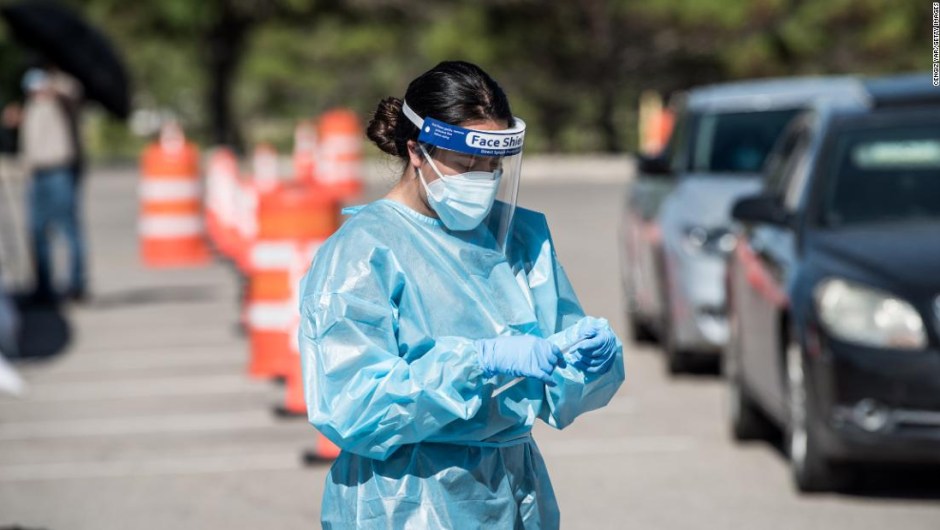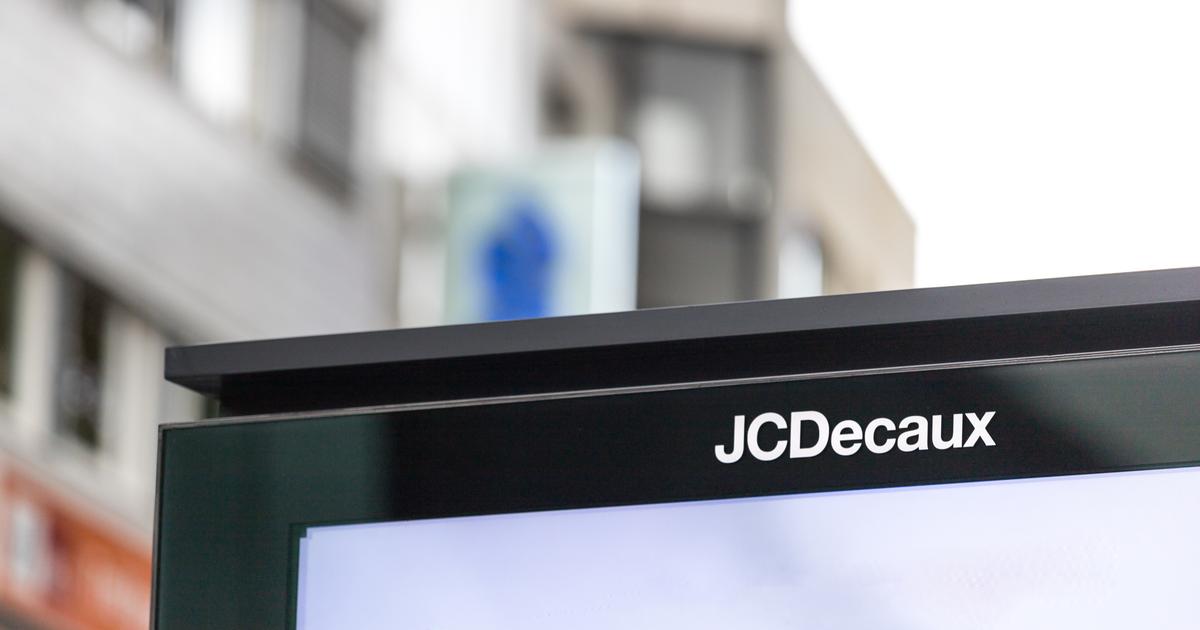(CNN) -
When the coronavirus pandemic reached its first peak in the spring, it took a dramatic toll on the nation: States ordered their residents to stay home to control the surge.
Patients crowded into crowded hospitals.
And millions lost their jobs.
Now, six months later, it looks like history may be repeating itself, with cities ordering curfews, hospitals reaching capacity and cases on the rise.
At 69,967 new cases per day, the seven-day average of new cases is at the highest levels since the pandemic began, bringing the national death toll to 225,720, according to data from Johns Hopkins University.
All of these factors have led health experts to confirm their fall prediction: the dreaded second surge of the virus is here.
LOOK: The United States is close to having an "exponential spread" of coronavirus in some areas, and the hardest part may still be to come, says former FDA official
As a result, many hospitals have to resort to opening alternative sites or even "rationing" their care, meaning they are determining which patients receive the highest levels of treatment.
advertising
In Utah, hospitals could be days away from using a patient's age, health and other factors to decide who can stay in crowded intensive care units due to a spate of COVID-19 cases.
"It's a complex way to take into account the situation, age, health and survivability of each patient," Greg Bell, president of the Utah Hospital Association, told CNN affiliate KUTV.
"It is a patient classification system".
As of Tuesday, there were more than 8.6 million cases in the United States, and more than 225,000 people had died, according to Johns Hopkins University.
Funeral homes run out of space
In the spring, New York City brought refrigerated trucks to Brooklyn to store bodies, a move designed to help funeral directors overwhelmed during the coronavirus pandemic, authorities said.
The deaths had tested the ability of funeral homes to keep up with the number of funerals and cremations needed in New York, which was by then the epicenter of the pandemic.
Now, a surge in coronavirus cases in El Paso, Texas, prompts funeral homes to make similar plans.
Part of that effort, two funeral homes told CNN, is setting up additional refrigeration units to house bodies if their usual space isn't enough.
Sunset Funeral Homes in El Paso has added three cadaver refrigeration units, manager Christopher Lujan told CNN on Thursday.
Lujan reported that most of the deaths his business sees are related to covid-19.
Perches Funeral Homes general manager Jorge Ortiz told CNN that he added two more refrigerators.
His business has also seen an increase in COVID-19-related deaths in the past two weeks.
"I would say that maybe 15% to 20% of all the services we receive now are COVID cases," Ortiz said.
'Our hospital capacity is really saturated'
Hospitals in states like Idaho, Texas, Utah, and Wisconsin have reported a drastic increase in their intensive care units.
A hospital in Wisconsin opened an alternate site outside Milwaukee and asked patient Amanda Best, 34, to move her care there.
Best tested positive for COVID-19 and was also diagnosed with double pneumonia, according to CNN affiliate WGBA-TV.
"It was more like 'we need space and you're willing (to go), because you're the youngest we have,'" Best told WGBA-TV.
"It's so bad right now inside the hospitals, and I could tell even with the care."
Similarly, in the west, the Utah Hospital Association warned Sunday that rationing of care could be just days away.
Utah Governor Gary Herbert said Monday that "hospitals are starting to fill up," adding that 20% of ICU patients are COVID-19 patients.
"We have seen, in the last few weeks, that our health care system is at its peak," said Dr. Angela Dunn, a state epidemiologist.
"I do not know what to do."
In Idaho, hospitals refuse to accept transfers or are very selective about which patients to accommodate, according to medical company Kootenai Health.
MORE: Fauci: We'll start to have some semblance of normalcy in late 2021 and maybe even 2022
The surge in El Paso has brought the area's hospitals and ICUs to full capacity.
“We have had significant spikes to the point where the capacity of our hospital is really exhausted.
We are probably at the end of our rope there, ”El Paso Mayor Dee Margo told CNN's Ana Cabrera Sunday night.
It's not good here.
The increase affected the county so badly that the Texas Division of Emergency Management (TDEM) established an alternate care site in El Paso to expand the capacity of hospitals with additional hospital beds, medical equipment and personnel. , according to a statement released by Texas Gov. Greg Abbott on Saturday.
"The alternative care site and auxiliary medical units will reduce the strain on El Paso hospitals as we contain the spread of COVID-19 in the region," Abbott said.
In North Dakota, the surge in cases has forced the National Guard to switch 50 soldiers tracking close contacts to notify people who tested positive, the state health department noted.
North Dakota officials now let people who test positive notify their close contacts.
“A sharp increase in coronavirus cases in recent weeks has put pressure on contact tracing teams at the state and local level, leading to backlogs in tracing and a backlog of positive cases that have yet to be assigned. to a case investigator, ”the North Dakota Department of Health reported last week.
New restrictions to reduce spread
To combat the spread of the virus nationwide, some officials support the idea of a national mask-wearing mandate.
"A term may be expressly limited to the next two months," wrote Dr. Scott Gottlieb, former commissioner of the US Food and Drug Administration.
"The drawback would allow the country to preserve health care capacity and keep more schools and businesses open."
Some cities already enact new restrictions to reduce the spread.
The El Paso surge has also prompted city officials to institute a two-week curfew in an effort to mitigate the spread of the virus.
The curfew will run from 10 p.m. to 5 a.m. and went into effect Sunday, El Paso County Judge Ricardo Samaniego said.
Those who do not comply with the orders could face a fine of US $ 250 for not wearing a mask and US $ 500 for not following the order, Samaniego said.
Chicago also instituted a corporate curfew and banned large social gatherings.
Nonessential businesses will now have to close at 10 p.m., a curfew that went into effect Friday, according to Mayor Lori Lightfoot.
Bars without a food retail license will not be able to serve customers indoors at any time.
And all establishments that serve alcohol for consumption in the place must end the service at 9 pm
The city is also asking Chicagoans to avoid social gatherings of more than six people and to end all social gatherings before 10 p.m.
CNN's Hollie Silverman, Gregory Lemos, Holly Yan, Artemis Moshtaghian, Gisela Crespo, Omar Jimenez, Leah Asmelash, Joe Sutton, Roxanne Garcia, Raja Razek, Scottie Andrew, and Melissa Alonso contributed to this report.
covid-19








